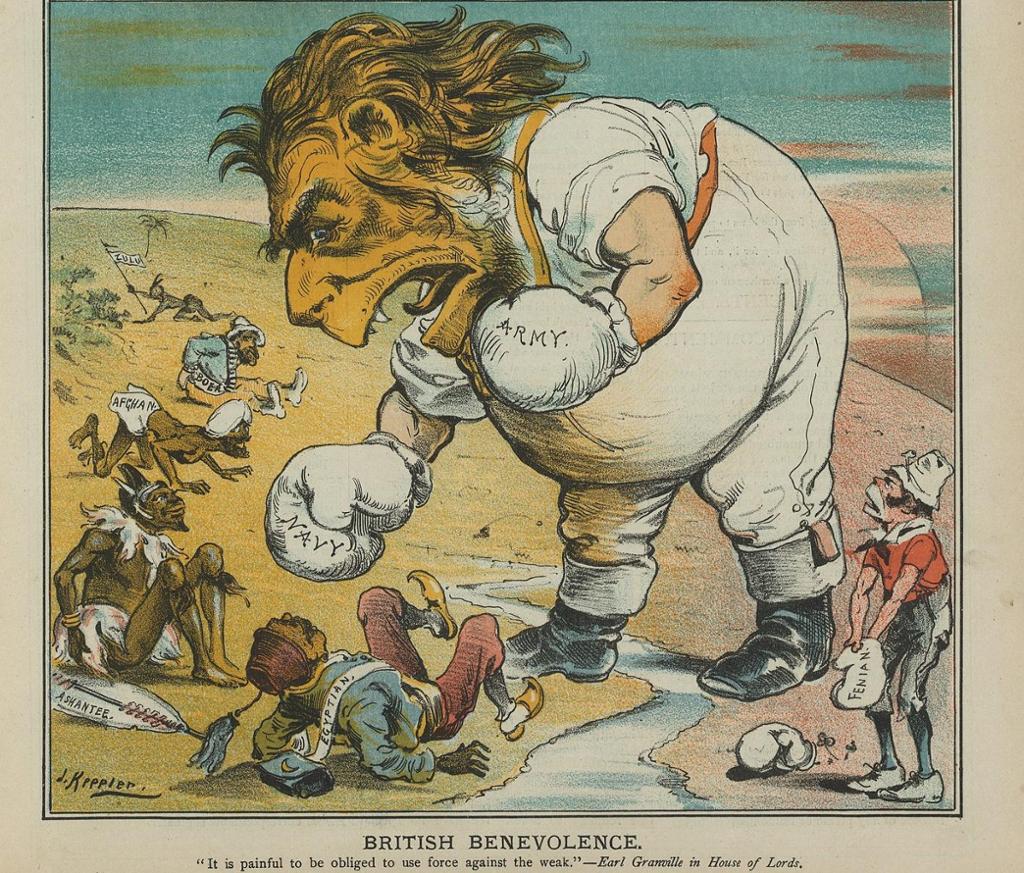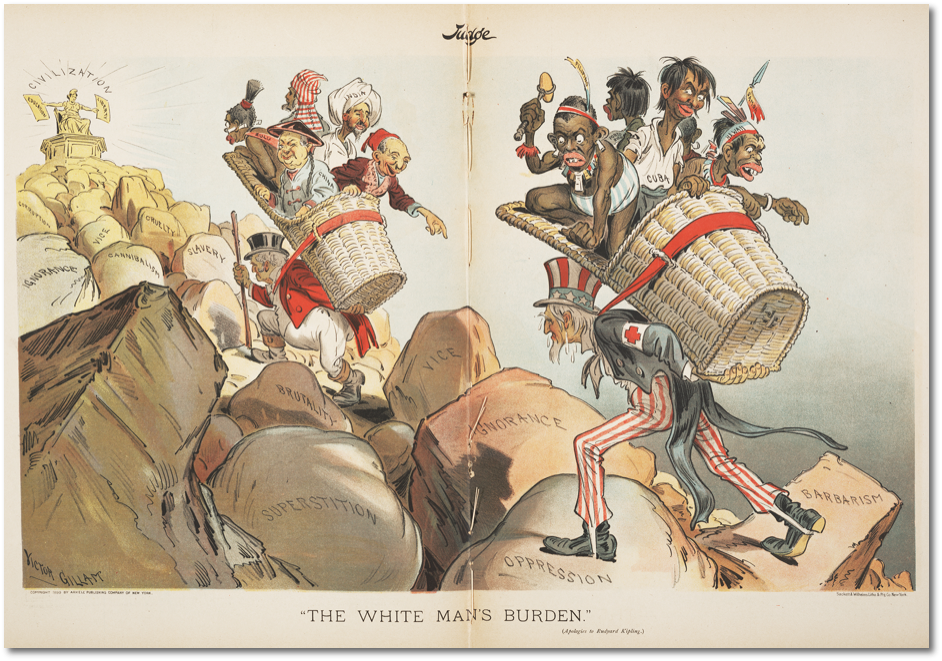The White Man's Burden by Rudyard Kipling

Take up the White Man's burden –
Send forth the best ye breed –
Go bind your sons to exile
To serve your captives' need;
To wait in heavy harness
On fluttered folk and wild –
Your new-caught sullen peoples,
Half devil and half child.
Take up the White Man's burden –
In patience to abide
To veil the threat of terror
And check the show of pride;
By open speech and simple,
An hundred times made plain,
To seek another's profit,
And work another's gain.
Take up the White Man's burden –
The savage wars of peace –
Fill full the mouth of famine
And bid the sickness cease;
And when your goal is nearest
The end for others sought,
Watch Sloth and heathen Folly
Bring all your hopes to nought.
Take up the White Man's burden –
No tawdry rule of kings,
But toil of serf and sweeper -
The tale of common things.
The ports ye shall not enter,
The roads ye shall not tread,
Go make them with your living,
And mark them with your dead !
Take up the White Man's burden –
And reap his old reward,
The blame of those ye better,
The hate of those ye guard –
The cry of hosts ye humour
(Ah slowly !) towards the light:–
"Why brought ye us from bondage,
"Our loved Egyptian night ?"
Take up the White Man's burden –
Ye dare not stoop to less –
Nor call too loud on Freedom
To cloak your weariness;
By all ye cry or whisper,
By all ye leave or do,
The silent sullen peoples
Shall weigh your Gods and you.
Take up the White Man's burden –
Have done with childish days –
The lightly proffered laurel,
The easy, ungrudged praise.
Comes now, to search your manhood
Through all the thankless years,
Cold-edged with dear-bought wisdom,
The judgement of your peers.

Relatert innhold
Tasks related to the poem 'The White Man's Burden' by Rudyard Kipling.